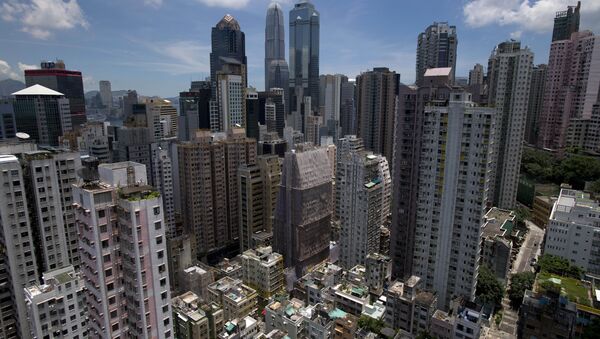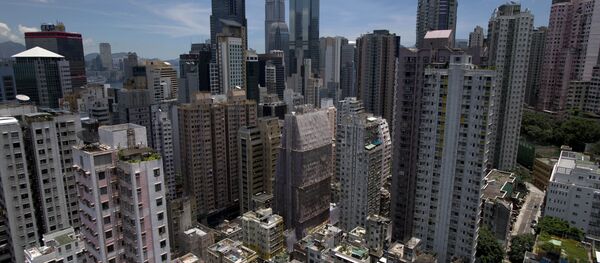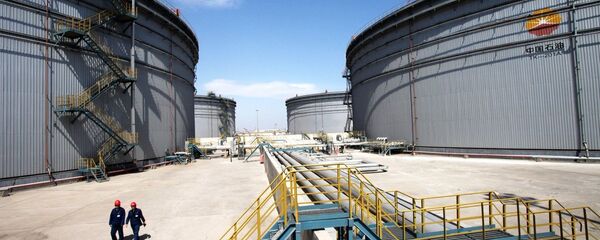Kristian Rouz – Hong Kong residential real estate prices continued to increase throughout the first half of the year, defying investor skepticism of the overpriced market and concerns that mainland China’s urge for the corporate sector to lower its indebtedness would pull wealthy Chinese buyers out.
Buoyant economic growth in Hong Kong and the economic stability in mainland China have both contributed to steady demand for Hong Kong homes. According to a separate report from the Chinese government, Hong Kong’s housing affordability has further deteriorated, with the proportion of income spent on mortgages having risen to 67 percent in 2Q17, compared to that of 56 percent a year ago.
The Chinese financial sector watchdogs have recently intensified their efforts to curb corporate sector debt, which has produced a retreat of Chinese capital from overseas real estate. Hong Kong also experienced a decline of capital influx from the mainland.
According to the data from Morgan Stanley, some 18 percent of foreign real estate investment originating in mainland China went to Hong Kong in 2016. For comparison, another 43 percent of the Chinese overseas real estate investment went to the US, 5 percent to the UK, 12 percent to Australia and 22 percent to other markets combined.
The nascent deleveraging of the Chinese corporate sector is poised to curb the levels of mainland investment in Hong Kong’s real estate, however, the market keeps expanding due to the influx of money from countries other than mainland China.
"In view of the likely positive developments on both the external and domestic fronts, the Hong Kong economy is expected to attain further solid growth in the rest of the year," the Chinese government said. "The generally benign global economic environment remained supportive to external demand."
Total Hong Kong exports of goods rose an annualized 5.6 percent, whilst exports of services rose 2.3 percent. Consumer spending rose by 5.3 percent, whilst the jobless rate dropped to 3.1 percent. Hong Kong investment rose by 8 percent year-on-year. The firm macro fundamentals suggest the economy is in a good shape, however, housing market dynamics might suggest this robust expansion might be peaking out.
The sharp increase in housing prices might start draining the international investors’ urge to allocate capital in Hong Kong. The broader economic growth in Hong Kong is thus exposed to a possible slowdown in the coming quarters.
"But if we are right that interest rates in the city will rise over the months ahead, it could precipitate a slump in the city's property market," Chang Liu of Capital Economics said. More than 90 percent of new mortgage costs in Hong Kong are based on the interbank rates, therefore an increase in interest rates "would lead to a sharp downturn in private consumption and real estate investment."
Besides, as the HK dollar is pegged to the US currency, further base interest rate hikes from the Federal Reserve would drive commercial rates up in Hong Kong. A slowdown in Hong Kong’s economy would thus hold back further gains in prices, but concerns of broad disinvestment are a bit far-fetched.





